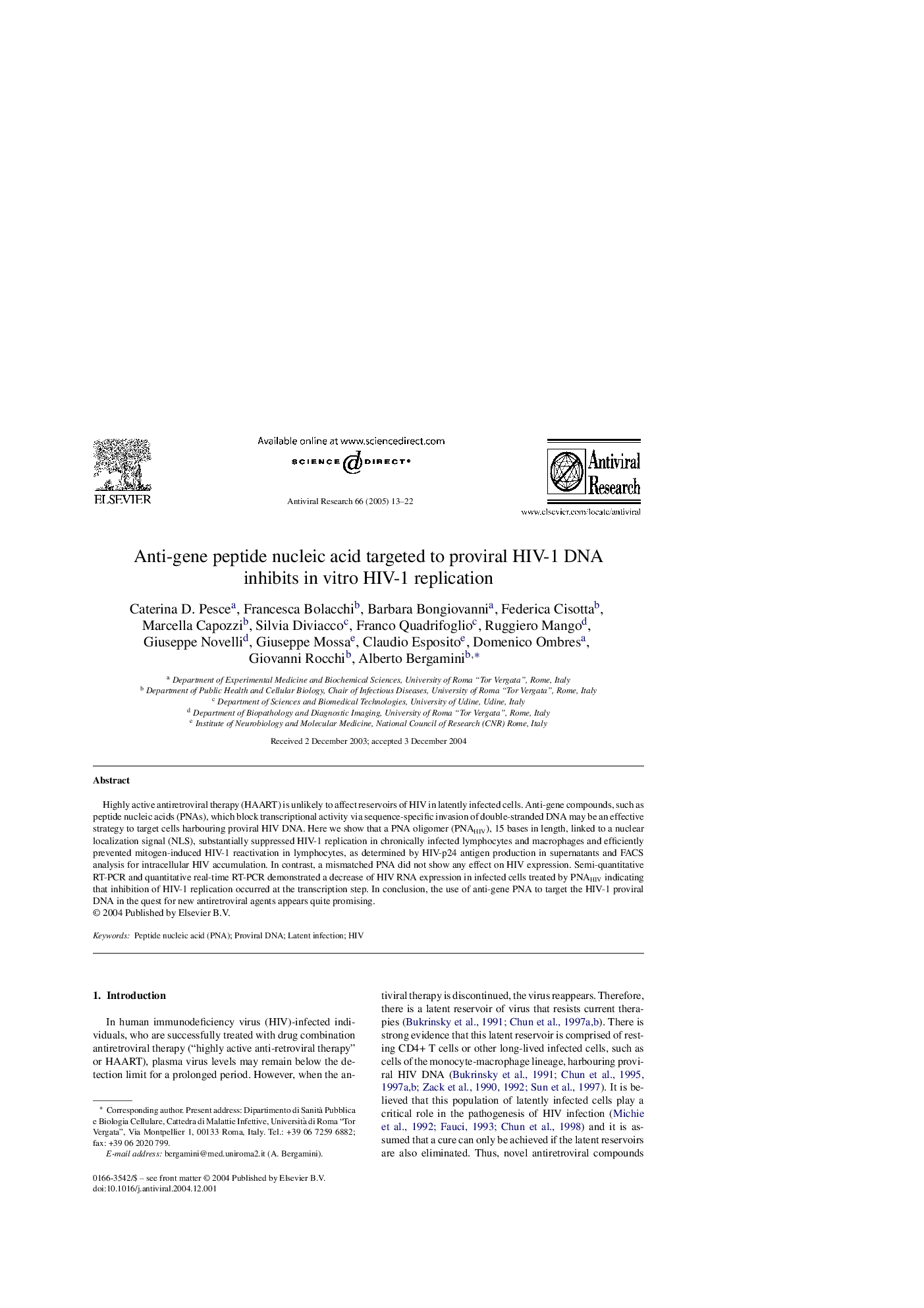| Article ID | Journal | Published Year | Pages | File Type |
|---|---|---|---|---|
| 9000951 | Antiviral Research | 2005 | 10 Pages |
Abstract
Highly active antiretroviral therapy (HAART) is unlikely to affect reservoirs of HIV in latently infected cells. Anti-gene compounds, such as peptide nucleic acids (PNAs), which block transcriptional activity via sequence-specific invasion of double-stranded DNA may be an effective strategy to target cells harbouring proviral HIV DNA. Here we show that a PNA oligomer (PNAHIV), 15 bases in length, linked to a nuclear localization signal (NLS), substantially suppressed HIV-1 replication in chronically infected lymphocytes and macrophages and efficiently prevented mitogen-induced HIV-1 reactivation in lymphocytes, as determined by HIV-p24 antigen production in supernatants and FACS analysis for intracellular HIV accumulation. In contrast, a mismatched PNA did not show any effect on HIV expression. Semi-quantitative RT-PCR and quantitative real-time RT-PCR demonstrated a decrease of HIV RNA expression in infected cells treated by PNAHIV indicating that inhibition of HIV-1 replication occurred at the transcription step. In conclusion, the use of anti-gene PNA to target the HIV-1 proviral DNA in the quest for new antiretroviral agents appears quite promising.
Related Topics
Life Sciences
Immunology and Microbiology
Virology
Authors
Caterina D. Pesce, Francesca Bolacchi, Barbara Bongiovanni, Federica Cisotta, Marcella Capozzi, Silvia Diviacco, Franco Quadrifoglio, Ruggiero Mango, Giuseppe Novelli, Giuseppe Mossa, Claudio Esposito, Domenico Ombres, Giovanni Rocchi, Alberto Bergamini,
